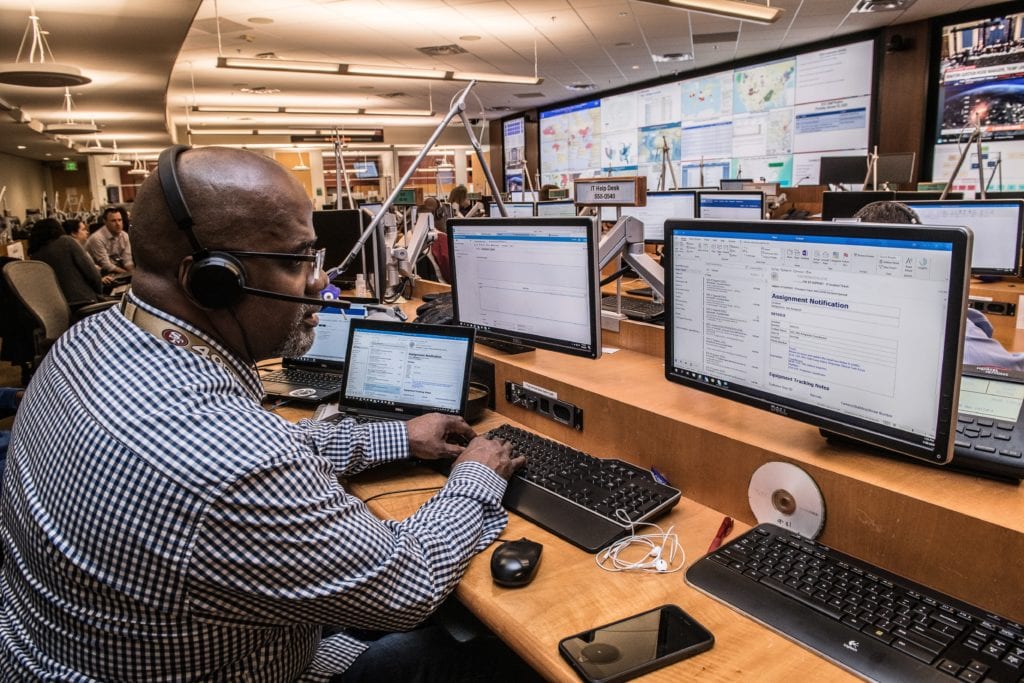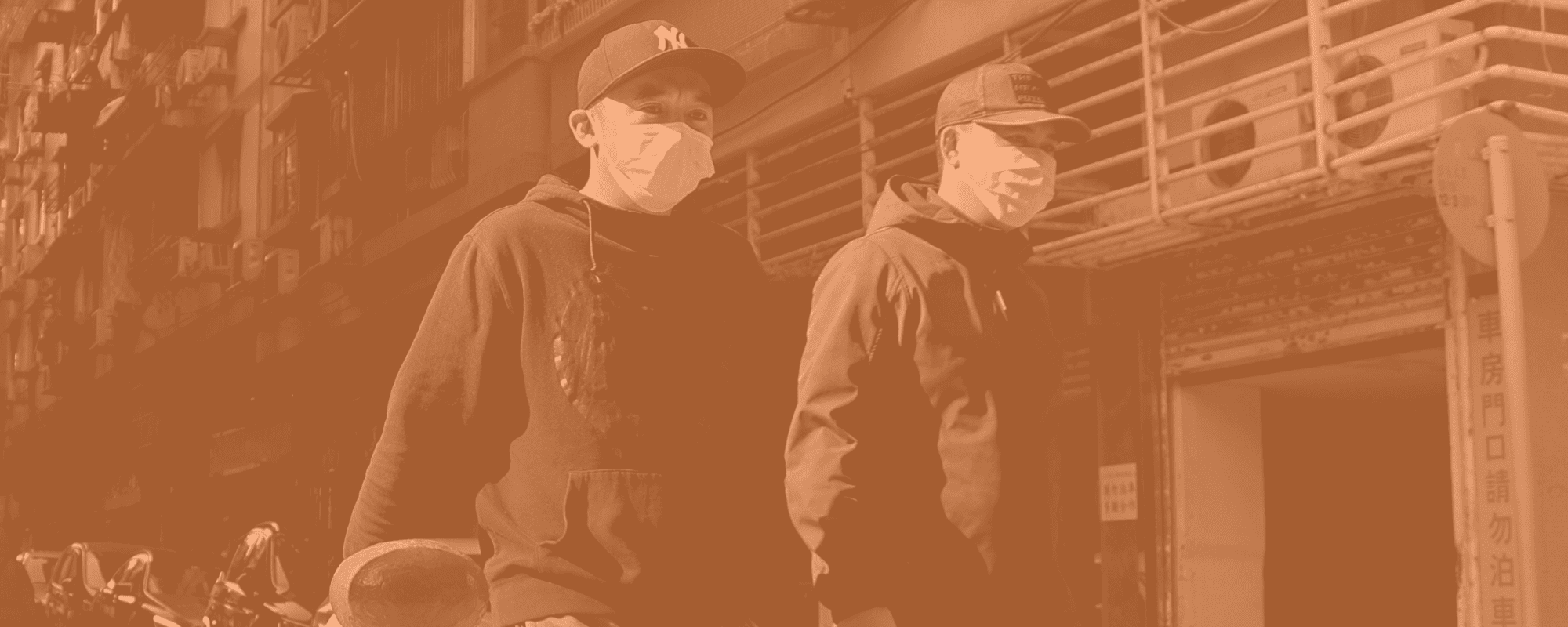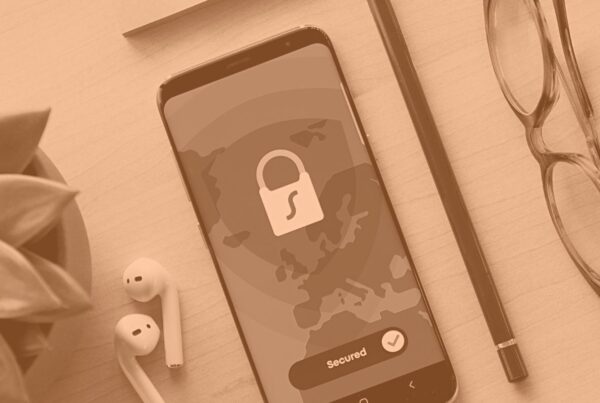Today’s episode of Event Brew will tackle the impact of the coronavirus on the events industry. As we’re all aware, the outbreak has been making headlines for a while now. And it seems only pertinent that we zoom into how this potentially affects our industry. Because as event profs, there are a million things we need to mindful of. This includes, of course, health-related issues, what our role demands in such situations, and what responsibilities we must keep in mind.
So this week, Will Curran and Nick Borelli take the stage to discuss the coronavirus impact on the events industry. What does this mean for planners? And what can we do to prevent potential issues? Are there any consequences we’re not aware of immediately? All of these questions will be discussed in-depth by our amazing duo of hosts. We also urge you to visit the resources section at the end of the post to get access to the best sources on the subject. So, if this particular topic as been on your mind, wait no further. Press play right now and let’s dive into the issue!
Click here for the full audio transcription.
 The Role Of An Event Prof
The Role Of An Event Prof
“The world is burying planners with all this stuff they have to know”, says Nick. “The difficult part is there are core competencies, sure. And then there are these things that pop up that we have to react to and say, “Do we have a plan for that?” Because one of the central tenants of event design, event planning, is that you hold the lives of people in your hands during the time that they’re staying at your event. It’s a responsibility. Then we have globalism, and one of the byproducts of globalism is the possibility of pandemics”.
“Our industry is directly related to travel, which is bringing people across borders”, adds Will. And especially, if we want to be as inclusive as possible, it means sometimes we’re going to end up bringing somebody over from an area that might have some coronavirus infecting their region. This might be a larger thing too is, how do you react to it in the events industry? What’s the coronavirus impact on the events industry?”.
Tackling Safety & Placating Fear
“I think that safety is going to be probably the most important pass-fail, as far as skills when it comes to event planners”, says Nick. “I think that there could be many different levels of okay, to good, to great at things like experience design, and behavioral science. And I think that you can certainly, you can get better. If you’re not that great at it, it’s okay. You can keep improving. I think safety’s pass-fail. You either have a safe environment to bring people in, in order for them to gather, or you don’t. I think that as core competencies go, I believe that it is something that event planners need to take as seriously as anything else that they do, just from a broad perspective”.
“From a specific perspective, the virus”, he continues. “As we get more and more information about it, it seems that it has changed and that it’s kind of a type of a virus similar to, in the same family, as SARS was years ago. Where it was supposedly in the animal kingdom at one point and then it traveled, and now it has the ability to move from person-to-person. I remember SARS, and I remember events around that time. And where that was pretty big. In fact, I believe at some of the epicenter of that, it was during IMEX America one year. I just remember it was a lot of conversations around washing your hands and using hand sanitizer. Because from person-to-person, that’s the best you can do, at least until things kind of pare down”.
“I think that the biggest challenge from an event perspective is putting out the right information and not trying to feed into the fear that happens”, explains Nick. Which brings up a pretty good point where fear is concerned, and on the coronavirus impact on the events industry.
The Coronavirus Impact On The Events Industry: What Can We Do?
“You can’t keep attendees away because you have a fear of maybe a specific person getting your attendees sick”, says Will. “I’m guessing a lot of people are saying, “I can’t really cancel my entire event”. Obviously, maybe there are different levels of which, but there are things you can control”.
Education Matters
Nick brings up an article regarding an event that will take place in San Francisco this month. “They actually dedicated a page on their website to the virus and keeping updates on it. What’s great about it is, is that they’re using their social media to let people know that’s there”, he explains.
“What I think is important about it is that it’s consolidated the best places for people to find information that isn’t partisan, isn’t non-reputable. The main one is always the World Health Organization. Then when it comes to the United States, it’s the CDC, the Center for Disease Control and Prevention. Then there’s travel advice, as far as what to pack, that the World Health Organization actually puts together as well. And then there’s also just general rules on protecting yourself from viruses”.
What We Can Learn
“I think that that move, I would emulate it if I was an event planner”, says Nick. “First off, I wouldn’t say too much. I wouldn’t feel like you need to be the author of things, because it’s been found in 12 countries. It is escalating. That’s on a dime because they have to hit certain saturation points. Because they’re always balancing these larger organizations that really, this is their only thing. They’re balancing fear and helping people”.
“I would say, don’t write too much. Don’t feel that you need to be the author of everything. Just point people in the right direction of the authorities in these areas. Because then you’ve done your due diligence, you haven’t seeded things with misaligned fear or given people maybe the bad advice. Those links that the CDC has and the World Health Organization have, those are living pages. As things change, they update them”.
Taking Control As Planners
“I think that the majority of your role, really, is to keep up-to-date with what’s going on with that”, says Nick. “And make that a priority and not make that something that you’re not willing to do. I think, sharing information with all of your stakeholders, all of your sponsors. Potentially exhibitors and, obviously, attendees. And let them make the decisions on their own, I think, to a certain level. Then once larger organizations get involved, then you could make decisions. I would, if you’re having events at a venue, the venue is going to be very involved. You should ask your venue, as far as what they do or if they have any history of being able to increase different ways to tackle issues like this”.
“Signage, potentially. Again, you don’t have to breed it in fear. But just say something to the effect of, “A safe meeting environment starts with you here,” or something like that. You don’t have to say, “Don’t get the virus” or anything of the sort.
Small, Important Things
A way to mitigate or decrease the coronavirus impact on the events industry is to be proactive in what you can. “Maybe talking to your venue to see if they can put some additional signage up to let people know where restrooms are”, suggests Will. “Maybe adding additional hand sanitizing areas where there are large groups of people going in together. Such as the entrance to the GS, and things like that”.
“There’s probably a programing aspect of it all too”, he continues. “For example, maybe it’s something like building it so your chairs are just a little bit further apart from each other. Or maybe making it so if there was an activity where people were going to get really physical and shake a lot of hands together, maybe not having that. Maybe there’s like temporary things. It’s not going to affect your entire event for the next 20 years. But maybe just your events in the next six months. Just being aware of this and how you can adjust the programing without creating fear in some way”.
 The Coronavirus Impact On The Events Industry: Lessons For The Future
The Coronavirus Impact On The Events Industry: Lessons For The Future
We talked about the roles of the future in the industry. And now it seems only fitting that we bring back the idea of a wellness expert. “Wellness has the ability to be so many different things”, says Nick. “I think that it’s a big umbrella when we talk about its role in events. I see the wellness one as super vitally important. Also, potentially, that wellness person has resources themselves, be it full-time consulting, whatever. To the degree that wellness is mental health, wellness is stretching and running around at events. Wellness is also the idea of when you bring people together, as anyone who’s flown knows, the increased likelihood of people getting sick are much higher, so that is an element of wellness. It’s not just yoga”.
“I think that there’s an opportunity there to, again, make that position more robust”, he continues. “By offering, and really specializing in those areas. There’s a lot of training that they could take on as well. There’s the idea of a crisis person. You would talk to your wellness person and they would say things like, “Okay, let’s let our attendees, upcoming attendees know what they should pack. What kind of fibers are good for things. How to pack their clothes differently.” Who knows?”.
It’s Not Just You Anymore
“Planners try to do everything and from a cost standpoint it’s, “Oh, it’s one person’s job.” It can’t be one person’s job anymore”, says Will. “I feel like delegating to a wellness person and a crisis person, they can be having these in-depth conversations, and having an hour-long conversation of, “Okay, what are our risks? What has your city had so far? Has your city had any major infections?” Or whatever it may be, and can talk about these things”.
“Because I’m betting you right now, some planner is listening to this right now and going, “I don’t have time to do this. I’m already behind schedule” or “I don’t have time to worry about this”. When it should be “I don’t have the time, and I need to worry about this. I’m going to have someone else do it.”, he adds.
“I get that from a practical and a pragmatic standpoint”, adds Nick. “Because generally, that’s where I come from, is a place of real and pragmatism. But I think that safety is a core competency. Safety is the bare minimum. You’re either safe or you’re not safe. There’s a lot of safety opportunities out there. I think that what’s important is that you have the channels that matter, the channels that are the most reputable in the world. And you exclusively focus on those. You push out the noise. You don’t go to CNN for this kind of stuff. That’s information via entertainment. To some extent, I think all of that stuff really is”.
Filtering Your News
“And you got to figure out how to filter your news too”, says Will. “I think that far too often, people are looking at way too much broad news. They’re getting their news from an Instagram feed, from a source that’s just so high-level. Or they’re going to CNN.com. So figure out ways to filter-down stuff so you get what’s important to you. I think that also helps with the overwhelm”.
“I’m looking at conferences, and when I see things as far as the feeds that I have, that deliver me the content that I consume. I’m looking at always, how does this affect conferences? And I’m looking at canceled flights and shows”, adds Nick. “To me, if I’m a show, I’m looking at the events that are taking place in the same area around the same time to see if they’re doing anything. There’s no reason why you should not be inspired by others. And to take into consideration that there are opportunities that maybe that exist in that city that you could take advantage of as well”.
“Having the links to the places that are updated every hour, and by the organizations that are in charge of this kind of stuff, that’s I think the best bet”, he continues. “Then just making sure that people are aware of that. And just making sure that you also have open lines of communication so you can say, “Look, if you’re experiencing anything and you need any help, let us know and we’ll be able to help communicate you to the proper authorities, locally.”
Learning How To Communicate
The coronavirus is clearly a crisis in itself. And knowing how to deal with a crisis in events is a must. “I think that trying to control the story and to piece out information to people is a bad play”, says Nick. Open communication, back-and-forth in order to address things as they come up. And also just pivot as quickly as possible is the best bet. I also believe that there is a point where you’re in control, and then there’s a point where authorities are in control. And you have to know where that threshold is”.
The Team You Want
“We were saying that these are all different people that should be at the table. However, in my opinion, a crisis team could actually be the same people at the table, but different shifts of authority”, he continues. “I believe that events of any decent size should have a crisis team. It might be the same hierarchy of your event leadership. It might be completely different”.
“But I would say, look at your team. It doesn’t have to be one’s a Director of Communications and one is the CMO. In a crisis, it’s a whole other set of skills, so you have to know who those people are. Once you do that, you say, in the makeup of the people who’ll be present, “Who will hold this position? Who will have this position?”. Then you go into crisis mode and it’s a whole other leadership hierarchy“.
Wrapping It Up
Ultimately, there is only so much we can tell you about the coronavirus impact on the events industry. “Event Brew is not about experts telling you what you should do. We’re like you”, says Nick. “These are the things we would do. This is how we would handle it. We would go out and go to the people we know have the real information. We would communicate a lot. And we know what we don’t know, and I think that’s key for planners”.
“Planners, they have so much they have to know. So I think that they’re often burdened with the fact that they’re pretty smart and they know it. Know when you’re not smart about something. Know when you’re not an authority on something. And in that instance, go to the people who are, and don’t try to overextend yourself to the degree that it would hurt somebody”.
“I would definitely agree”, adds Will. “If you’re worried about this sort of thing, bring in your team and delegate and trust that they will follow through on this and look into it further for you. Don’t let this, in some ways, become like a dual-aired virus, like it’s the virus itself and then fear alongside it. Don’t let that fear get to you. Just lead your team, trust your team. If you don’t have a team, this is the call to action for you to start building the team to be able to help with that sort of thing”.
Resources
As we’re dealing with a topic that is subject to consistent change, we urge every member of the industry to be on top of the situation. In addition to all the information you can find throughout the post, we leave you a detailed list of trustworthy and authority websites that will provide all the input you need on the impact of the coronavirus on the events industry. Stay informed, stay safe, and get your education from the best sources out there!
Coronavirus and Meetings – prevue
Coronavirus – World Health Organization
Novel Coronavirus Update – RSA Conference
About coronavirus – Events Industry Council
Event Crisis Communications Certificate Program
Coronavirus 2019-nCoV Global Cases by Johns Hopkins CSSE
Coronavirus Forcing Big Meetings to Take Action – MeetingsNet
5 Scenarios of the Coronavirus Impact on Events – Event Manager Blog
State Department Elevates China Travel Advisory to ‘Do Not Travel’ – PCMA
Emergency Preparedness and Response: Coronavirus – US Travel Association
Novel Coronavirus (2019-nCoV) advice for the public – World Health Organization
Wuhan Coronavirus Looks Increasingly Like a Pandemic, Experts Say – New York Times
What Business Events Professionals Need to Know About the Novel Coronavirus – PCMA
Coronavirus explained: Why tracking the deadly disease is a huge challenge – USA Today Video










